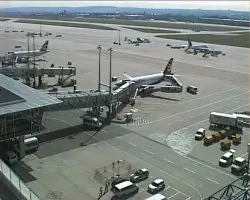Home » Insurance » Travel » Specialist » Travel News » Times are changing in the travel industry

Life has changed considerably when it comes to travelling anywhere nowadays. While most baby-boomers did not leave the UK before they were 16, the majority of children from Generation Z (today aged 18-24) travelled abroad around four times before turning 16.
Today's 18 to 24 year-olds have travelled at least three times more than their grandparents – people from the Baby Boom generation – according to research by Post Office Travel Insurance.
To be precise, while a huge number of Baby Boomers had never left the UK before the age of 16; at least 70% of those from Generation Z had travelled abroad before the same age.
Despite European countries being the most popular destinations for travellers from Generation Z, those have also ventured as far as Africa, North America, and South and Central America.
Historical developments on travelling
The reasons for these trends are numerous. The study suggests that package holidays – introduced back in 1950 – revolutionised the potential for travelling abroad. The advent of the Boeing 747 and charter flights in 1970 also made things easier for those willing to discover the world outside the British borders.
Research also reveals what the main concerns are when travelling with children. The most prominent travel worries for parents include accidents and tummy bugs.
Keeping the children entertained, getting seats together as a family and being able to contain and control the children during the flight are the three major concerns when travelling with children by plane.
Investing in travel insurance can make parents less anxious about going abroad, especially when there are children involved.
We use cookies and other tracking technologies to improve your browsing experience on our website, to show you personalized content and targeted ads, to analyze our website traffic, and to understand where our visitors are coming from. By browsing our website, you consent to our use of cookies and other tracking technologies.